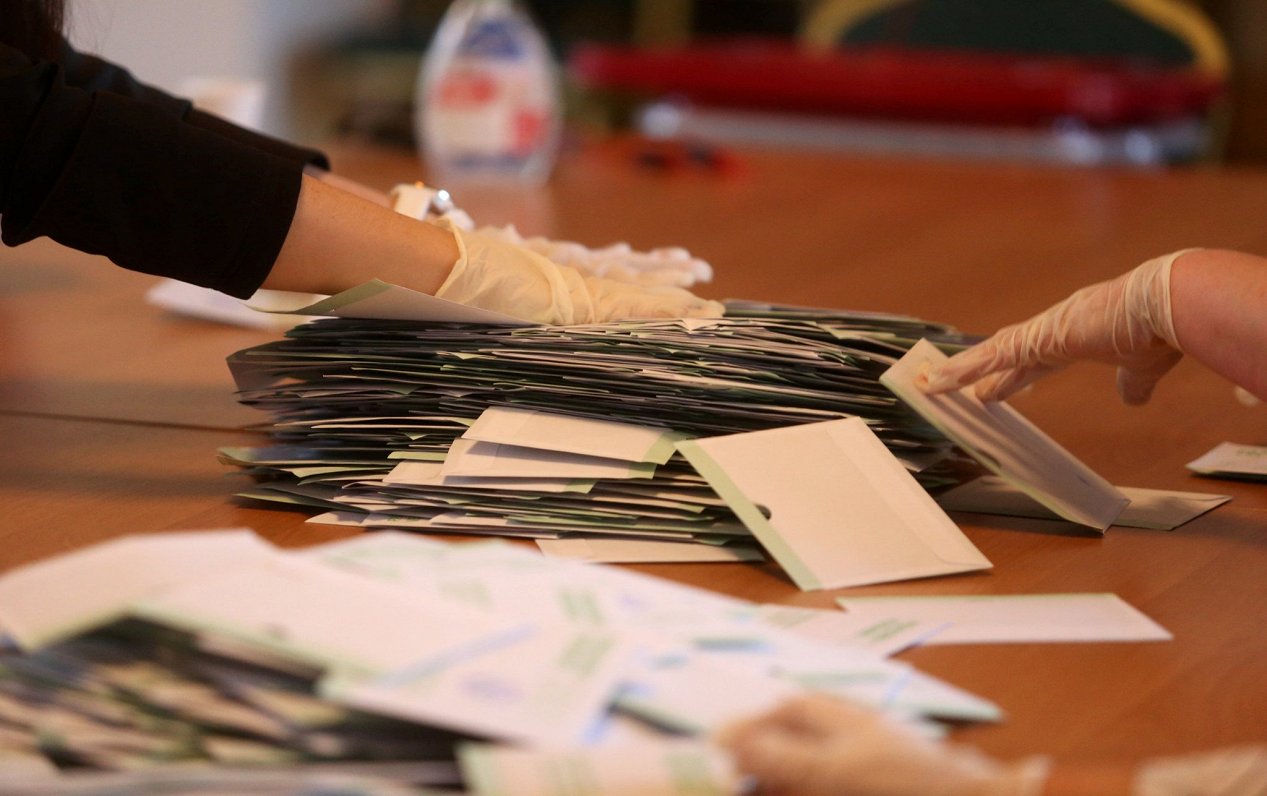Valdlauči neighborhood
“I don't like the whole electoral system in Latvia because there are too many parties. There are three parties in America and everything happens. But for us, it is a fragmentation that prevents people from understanding anything. I sometimes participate in elections and sometimes do not participate,” said Jānis.
“I don't like to talk long and hard about what someone has done. I need to see what has been done, what percentage of the promised, a table where you can clearly evaluate it, not blabbering. Everybody promises what is needed, but realistically gas is expensive, and electricity… We have entered the exchanges, the OIK has not been canceled… where is the action? I now paid 650 euros for the gas, I had 180 euros at the beginning,” he said.
Resident Inese said she always participates in elections but acknowledged she is not sure if her voice has any value in the overall political process in Latvia.
“Honestly, there is such pessimism that nothing changes from it, but it must be done when you think about what is happening in Ukraine. The big bear is right next to us,” Inese said.
The pensioner Jānis is pessimistic about the existing Saeima and government, but nevertheless will participate in the elections and has never missed them before: “I have gone to that election all the time. The choice is not so easy to make, because there is no such activity in government, everybody is just for the money. But what else can you do, while you are alive, you have to go to the vote.”
Purvciems
Purvciems resident Pāvils has not participated in Saeima elections for a long time since there are no candidates corresponding with his views. Pāvils said he was focused on the economy, so he was always familiar with the party programs, but concluded that there were only impossible promises.
“They all have abstract stories that something will rise up and improve, but exactly how they will do it is not said there. It's the way to say I'll build a car myself now, but there's no concrete plan to do it – where I'll get funds, engineers, or tires… Well, very abstract promises. It would be good if all the long-standing parties made a simple list of what they have promised in advance and the work they have done, for the sake of their image. But it's not there for any party,” Pāvils said.
He said he would not go vote this time either. “No, I'm not going to go. It seems to me that the parties also lack good marketing specialists. Plus, I'd like to see people of the new generation. Let's have those young ones and maybe they'll make some mistakes, but it's going to be something new and different. Generations are changing, human values, priorities, and worldviews are changing. But those people sitting there, they're just the same ones going in circles. I just remember at least four politicians leaving politics several times and coming again, but there are no new ones.”
Residents Sandra and Lolita shared their views on elections and citizens' activities: “The party ads have been very active this year, but are not believed anyway. You must first show what has already been done. Well, this year maybe people are going to vote more because there are current things that frighten. For example, what will be with the pandemic and with job opportunities in the autumn. Prices are rising everywhere, but wages are not rising, and heating has to be paid for."
Āgenskalns
“I'm not going to the election, I'm not interested. There is no point because it seems that the population does not have sufficient control over what is going on. It's not pessimism, but I just choose to focus on those things I can influence. I help a neighbor or family member,” Roberts said.
Artūrs said: “I'm usually trying to participate, I'm going to vote this year, but I don't know for whom. I know I can give influence with my voice, but I don't have that enthusiasm for any party that it's just them that I stand for. I choose the lesser of all evils.”
“My motivation is that my grandparents could come to Latvia on their feet from Berlin after their capture. I don't have to go so crazy far, I can take a shorter path to influence my surroundings… And I influence it not only by voting once in a couple of years but also by actively telling the parties on social networks reflections and advice on what I think can be done better,” said Atvars.
Participation in elections is dwindling
Data from the Central Election Commission (CVK) show that voter turnout in parliamentary elections has only gradually fallen. In the aftermath of Latvia's independence recovery, in the 1993 Saeima elections, the activity was almost 90%. In the meantime, only 54% of the voting population voted in the last Saeima elections. There were particularly worrying figures in local government elections last year, with only 34% of activity.
“In February, we thought the Saeima elections could have a lower turnout than four years ago. Of course, war is probably a motivator for some people, voters reconsider their desire to participate,” said Kristīne Bērziņa, head of the CVK.
The survey of CVK voters shows increasing distrust among political parties. Four years ago, 20% of respondents said they didn't see any sense in the elections, but the figure was 36% this year. Bērziņa concluded that the education system needs to strengthen the knowledge of how the country functions, as data show that the least frequent voters are young people aged 18 to 25.





























